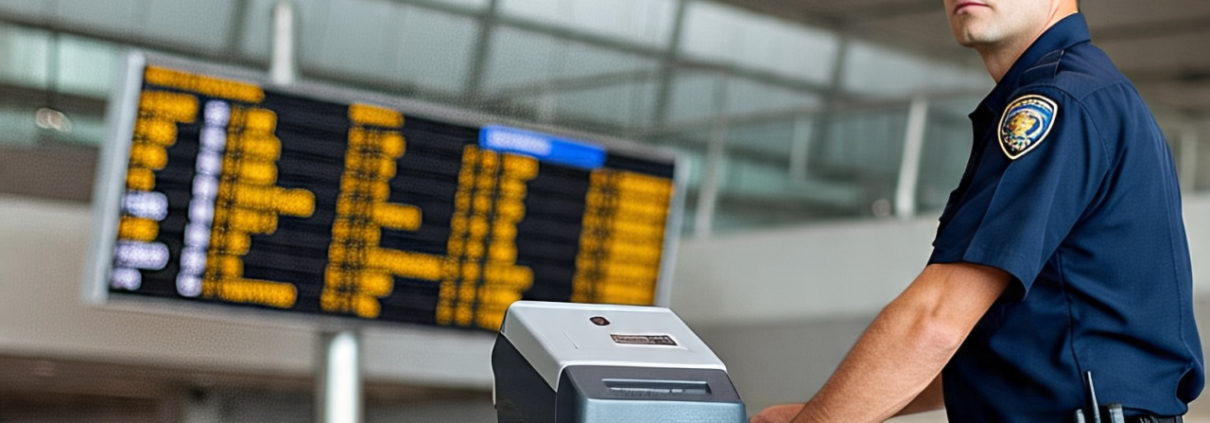The Role of Security Guards in Airport Security
Introduction: A Vital Part of Airport Operations
Airports are among the most high-risk areas in terms of security threats, including terrorism, smuggling, and unauthorized access. The role of security guards in maintaining order and safety is indispensable. They serve as the frontline defense, ensuring that both passengers and staff operate in a secure environment.
The Increasing Importance of Airport Security
Over the past two decades, the need for stringent airport security has skyrocketed due to rising global threats. From baggage checks to passenger screenings, security has become an integrated part of airport operations. Security guards are key players in enforcing these protocols and mitigating risks.
Responsibilities of Airport Security Guards
Security guards in airports are responsible for a wide range of duties. These include checking IDs, monitoring surveillance systems, patrolling restricted areas, and responding to emergencies. They work in collaboration with local police and federal agencies to uphold law and order.
Threat Prevention Through Vigilance
Security guards are trained to identify suspicious behavior and intervene before it escalates into a threat. Their constant presence and active monitoring help deter potential criminal activity and ensure quick responses when needed.
Managing Passenger Flow and Crowd Control
During peak travel seasons, airports can become extremely crowded. Security personnel help manage the flow of passengers through check-in areas, security lines, and boarding gates. This ensures not just safety but also smoother operations.
Supporting Advanced Surveillance Technologies
Today’s airports are equipped with advanced surveillance technologies like facial recognition and AI-driven cameras. Security guards work hand-in-hand with these technologies, interpreting alerts and taking necessary action when anomalies are detected.
Handling Emergencies and Crisis Situations
In case of emergencies such as fire, medical issues, or security breaches, airport security guards are among the first to respond. Their training equips them to take charge, guide evacuations, and provide first aid until specialized help arrives.
Securing Restricted and High-Security Zones
Not all areas in an airport are accessible to the public. Security guards play a key role in monitoring access to sensitive zones such as control towers, baggage handling rooms, and staff-only areas. Their presence acts as a deterrent to unauthorized access.
Enhancing Passenger Confidence and Safety
Visible and professional security personnel help reassure travelers about their safety. Passengers are more likely to feel secure and confident knowing that trained guards are actively ensuring a safe travel environment.
Collaboration with National and International Agencies
Airport security doesn’t operate in isolation. Security guards collaborate with customs, immigration officers, and international law enforcement agencies to uphold global aviation standards and regulations.
Static Security: The Backbone of Airport Surveillance
One of the most critical roles in airport security is static security—guards who are stationed at key points such as entrance gates, baggage checks, and boarding zones. For instance, professional static guard services from this Melbourne-based provider help prevent unauthorized access and ensure 24/7 surveillance coverage.
Role in Preventing Smuggling and Illegal Activities
Airports are often targeted for illegal activities such as drug smuggling or human trafficking. Security guards are trained to spot and act on red flags. Their ability to detect deceitful behavior contributes significantly to preventing crime at airports.
Monitoring Entry and Exit Points
Every entry and exit point at an airport needs constant monitoring to prevent security lapses. Guards are assigned to these points to verify identification, scan for unauthorized items, and maintain records of personnel movement.
Specialized Training for Airport Scenarios
Security guards deployed at airports undergo specialized training that includes crisis management, bomb detection, crowd control, and conflict resolution. This focused training enables them to deal with aviation-specific threats effectively.
Partnering with Private Security Firms
Airports often rely on third-party security services for additional support. Collaborating with a trusted Australian security agency ensures comprehensive coverage and adds another layer of expertise to airport security infrastructure.
Conclusion: A Pillar of Safe Air Travel
Airport security guards are more than just enforcers—they’re peacekeepers, emergency responders, and critical assets in national defense. Their role continues to evolve with emerging technologies and changing global threats, making them an essential part of modern airport operations.
FAQs
1. Why are security guards essential at airports?
They ensure safety by managing access, preventing threats, and responding to emergencies.
2. Do airport security guards carry weapons?
It depends on the country’s regulations, but many are trained in non-lethal defense tactics.
3. How do they differ from police at airports?
Security guards focus on surveillance and prevention, while police handle law enforcement and criminal activities.
4. Are private security firms used at airports?
Yes, many airports hire private security companies to supplement government staff.
5. What training do airport security guards receive?
Training includes crowd control, surveillance, emergency response, and customer service.
6. Can security guards make arrests?
They can detain individuals and must hand them over to law enforcement for formal arrest procedures.



Leave a Reply
Want to join the discussion?Feel free to contribute!